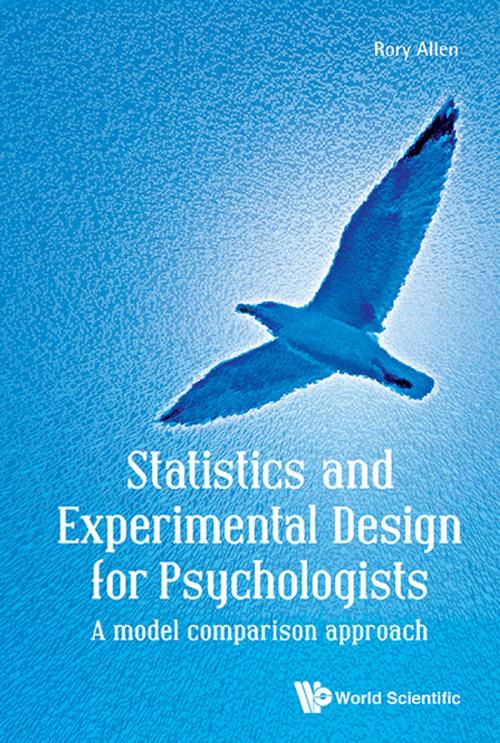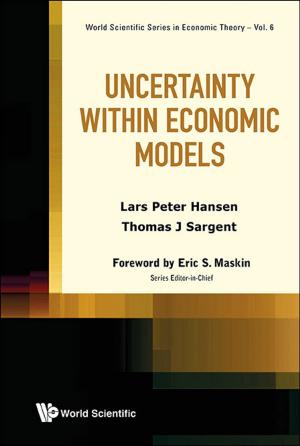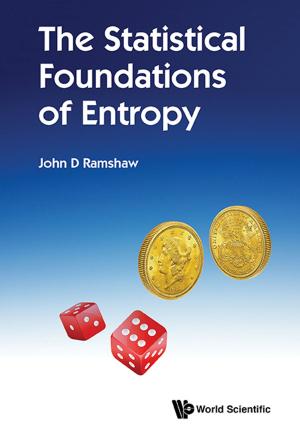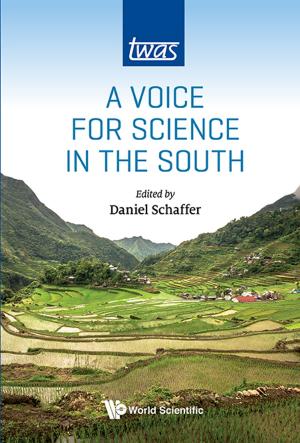Statistics and Experimental Design for Psychologists
A Model Comparison Approach
Nonfiction, Health & Well Being, Psychology, Statistics, Reference| Author: | Rory Allen | ISBN: | 9781786340672 |
| Publisher: | World Scientific Publishing Company | Publication: | August 28, 2017 |
| Imprint: | WSPC (EUROPE) | Language: | English |
| Author: | Rory Allen |
| ISBN: | 9781786340672 |
| Publisher: | World Scientific Publishing Company |
| Publication: | August 28, 2017 |
| Imprint: | WSPC (EUROPE) |
| Language: | English |
This is the first textbook for psychologists which combines the model comparison method in statistics with a hands-on guide to computer-based analysis and clear explanations of the links between models, hypotheses and experimental designs. Statistics is often seen as a set of cookbook recipes which must be learned by heart. Model comparison, by contrast, provides a mental roadmap that not only gives a deeper level of understanding, but can be used as a general procedure to tackle those problems which can be solved using orthodox statistical methods.
Statistics and Experimental Design for Psychologists focusses on the role of Occam's principle, and explains significance testing as a means by which the null and experimental hypotheses are compared using the twin criteria of parsimony and accuracy. This approach is backed up with a strong visual element, including for the first time a clear illustration of what the F-ratio actually does, and why it is so ubiquitous in statistical testing.
The book covers the main statistical methods up to multifactorial and repeated measures, ANOVA and the basic experimental designs associated with them. The associated online supplementary material extends this coverage to multiple regression, exploratory factor analysis, power calculations and other more advanced topics, and provides screencasts demonstrating the use of programs on a standard statistical package, SPSS.
Of particular value to third year undergraduate as well as graduate students, this book will also have a broad appeal to anyone wanting a deeper understanding of the scientific method.
Contents:
-
What is Science?
-
Comparing Different Models of a Set of Data
-
Testing Hypotheses and Recording the Result: Types of Validity
-
Basic Descriptive Statistics (and How Pierre Laplace Saved the World)
-
Bacon's Legacy: Causal Models, and How to Test Them
-
How Hypothesis Testing Copes with Uncertainty: The Legacy of Karl Popper and Ronald Fisher
-
Gaussian Distributions, the Building Block of Parametric Statistics
-
Randomized Controlled Trials, the Model T Ford of Experiments
-
The Independent Samples t-Test, the Analytical Engine of the RCT
-
Generalising the t-Test: One-Way ANOVA
-
Multifactorial Designs and Their ANOVA Counterparts
-
Repeated Measures Designs, and Their ANOVA Counterparts
-
Appendices:
- On Finding the Right Effect Size
- Why Orthogonal Contrasts are Useful
- Mathematical Justification for the Occam Line
-
Glossary
-
Further Reading
-
References
-
Index
Readership: Students of undergraduate and graduate level psychology, and academics involved in research.
Key Features:
- Currently, research methods books either focus narrowly on experimental design with a statistical section as an add-on, or they major on statistical analysis while providing little or no explanation of research design
- This book develops experimental models and statistical analysis in tandem; at each stage, the student will be able to make practical use of even the simplest methods to obtain the answer to a research question
- This approach draws on modern language training methods, based on the Berlitz concept and its subsequent developments, which equip the student with usable skills at each stage, providing reward at each level and motivation to proceed to the next one
This is the first textbook for psychologists which combines the model comparison method in statistics with a hands-on guide to computer-based analysis and clear explanations of the links between models, hypotheses and experimental designs. Statistics is often seen as a set of cookbook recipes which must be learned by heart. Model comparison, by contrast, provides a mental roadmap that not only gives a deeper level of understanding, but can be used as a general procedure to tackle those problems which can be solved using orthodox statistical methods.
Statistics and Experimental Design for Psychologists focusses on the role of Occam's principle, and explains significance testing as a means by which the null and experimental hypotheses are compared using the twin criteria of parsimony and accuracy. This approach is backed up with a strong visual element, including for the first time a clear illustration of what the F-ratio actually does, and why it is so ubiquitous in statistical testing.
The book covers the main statistical methods up to multifactorial and repeated measures, ANOVA and the basic experimental designs associated with them. The associated online supplementary material extends this coverage to multiple regression, exploratory factor analysis, power calculations and other more advanced topics, and provides screencasts demonstrating the use of programs on a standard statistical package, SPSS.
Of particular value to third year undergraduate as well as graduate students, this book will also have a broad appeal to anyone wanting a deeper understanding of the scientific method.
Contents:
-
What is Science?
-
Comparing Different Models of a Set of Data
-
Testing Hypotheses and Recording the Result: Types of Validity
-
Basic Descriptive Statistics (and How Pierre Laplace Saved the World)
-
Bacon's Legacy: Causal Models, and How to Test Them
-
How Hypothesis Testing Copes with Uncertainty: The Legacy of Karl Popper and Ronald Fisher
-
Gaussian Distributions, the Building Block of Parametric Statistics
-
Randomized Controlled Trials, the Model T Ford of Experiments
-
The Independent Samples t-Test, the Analytical Engine of the RCT
-
Generalising the t-Test: One-Way ANOVA
-
Multifactorial Designs and Their ANOVA Counterparts
-
Repeated Measures Designs, and Their ANOVA Counterparts
-
Appendices:
- On Finding the Right Effect Size
- Why Orthogonal Contrasts are Useful
- Mathematical Justification for the Occam Line
-
Glossary
-
Further Reading
-
References
-
Index
Readership: Students of undergraduate and graduate level psychology, and academics involved in research.
Key Features:
- Currently, research methods books either focus narrowly on experimental design with a statistical section as an add-on, or they major on statistical analysis while providing little or no explanation of research design
- This book develops experimental models and statistical analysis in tandem; at each stage, the student will be able to make practical use of even the simplest methods to obtain the answer to a research question
- This approach draws on modern language training methods, based on the Berlitz concept and its subsequent developments, which equip the student with usable skills at each stage, providing reward at each level and motivation to proceed to the next one















